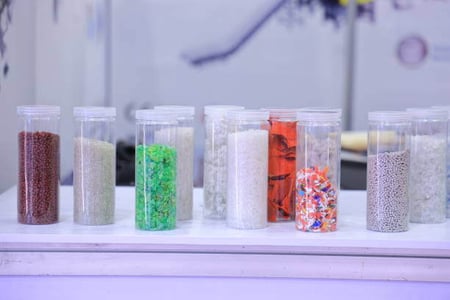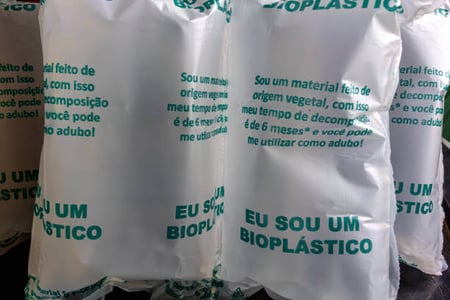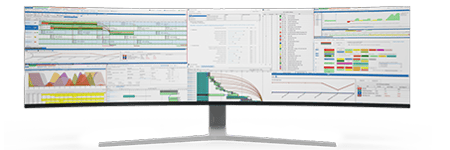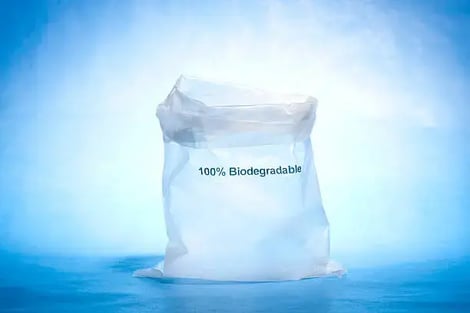Rethinking Packaging: Recycling Plastics or Switching to Bioplastics?
In the packaging and containers manufacturing landscape, Operations Directors face a unique dilemma: balancing sustainability goals with operational efficiency and cost-effectiveness. At the center of this challenge lies a pressing question—should we invest in recycling traditional plastics or pivot towards bioplastics?
Both options carry significant implications across the supply chain, production lines, material sourcing, and regulatory compliance. The choice doesn’t just influence the bottom line—it can reshape your company's reputation and resilience in a future where sustainability is not a buzzword, but a business imperative.
This blog explores both strategies through the lens of an Operations Director, weighing their advantages and complexities, and highlighting how digital tools like PlanetTogether, when integrated with systems such as SAP, Oracle, Microsoft Dynamics, Kinaxis, or Aveva, can enable informed, agile decision-making.
The Stakes: Why This Decision Matters
The global packaging industry is under scrutiny. Consumers are demanding more sustainable products, governments are imposing stricter regulations on plastic use, and brand owners are setting aggressive Environmental, Social, and Governance (ESG) goals.
Yet for Operations Directors, the decision to recycle plastics or switch to bioplastics isn't just about sustainability—it’s about maintaining production efficiency, managing costs, adapting supply chains, and avoiding disruptions.

Strategy 1: Enhancing Plastic Recycling Operations
Recycling plastics remains a favored option due to existing infrastructure, familiarity with resin behavior, and a mature supplier ecosystem. High-quality recycling programs, especially for PET, HDPE, and PP plastics, have come a long way. However, challenges persist:
Operational Considerations:
Material Variability: Recycled content varies in color, strength, and melt flow index, affecting machine calibration and quality control.
Production Planning: Fluctuations in recycled feedstock availability can disrupt scheduling and batch planning.
Regulatory Compliance: Traceability and documentation are crucial, especially for food-grade applications.

Enabling Smarter Recycling with Integrated Planning:
This is where PlanetTogether APS (Advanced Planning and Scheduling) software, integrated with ERP systems like SAP, Microsoft Dynamics, or Oracle, can provide game-changing value.
By integrating real-time data from ERP systems, PlanetTogether enables:
Dynamic material substitution: Quickly assess and adapt to the availability of different recycled resins.
Detailed batch traceability: Maintain end-to-end traceability from material intake to packaged product, critical for compliance.
Capacity optimization: Plan production around recycling throughput, accounting for cleaning, sorting, and reprocessing stages.
If your facility also leverages Aveva for operational intelligence, integration with PlanetTogether adds visibility into energy and water consumption metrics—critical KPIs when evaluating the true sustainability of plastic recycling.

Strategy 2: Transitioning to Bioplastics
Bioplastics offer an appealing alternative, especially for companies aligning with circular economy principles. Derived from renewable biomass sources like corn starch or sugarcane, bioplastics such as PLA (polylactic acid) and PHA (polyhydroxyalkanoates) are gaining traction.
Operational Considerations:
Material Performance: Bioplastics often behave differently under heat and pressure, requiring equipment adjustments and operator retraining.
Supply Chain Volatility: Agricultural feedstock prices can be volatile, especially with competing demand from food and fuel industries.
Sourcing and Certification: Ensuring certified bioplastic feedstock (e.g., ASTM D6400, EN 13432) requires robust supplier qualification.

Leveraging Technology for Bioplastics Adoption:
For Operations Directors navigating the bioplastics transition, integration between PlanetTogether and Kinaxis can be a strategic asset.
Here’s how:
Demand-supply alignment: Kinaxis RapidResponse enables real-time scenario planning for demand surges or feedstock shortages. When linked to PlanetTogether, your production schedules dynamically adjust based on what’s realistically available.
CO2 and cost impact modeling: PlanetTogether can incorporate carbon intensity data to compare bioplastic versus fossil-based resin runs—providing sustainability and cost metrics side by side.
Supplier agility: Integrated ERP + APS systems help onboard alternative bioplastic suppliers faster, with automated compliance checks and performance tracking.

Bridging the Gap: A Hybrid Approach?
Interestingly, many packaging manufacturers are not choosing one path—they're running dual strategies. For example, they may continue recycling high-volume plastics like HDPE and PET, while piloting bioplastics for short shelf-life or premium product lines.
Key Capabilities Required for Dual Path Success:
Flexible Scheduling: PlanetTogether enables multi-line scheduling based on material type, minimizing downtime during changeovers.
Multi-site Coordination: For large organizations using SAP or Oracle ERP, central scheduling via PlanetTogether ensures consistency across plants experimenting with different materials.
Scenario Simulation: Run "what-if" scenarios—what if bioplastic costs drop by 20%? What if recycled content availability declines during peak season?
This type of foresight is no longer optional—it’s a necessity in an environment where material supply and ESG expectations change faster than ever.
Data-Driven Decision-Making: From Reactive to Proactive
What separates high-performing operations teams from the rest isn't necessarily budget or headcount—it's decision velocity and confidence.
When integrated with PlanetTogether, platforms like Aveva or Kinaxis can provide your team with:
Near real-time visibility into material usage and production status
Automated alerts for deviation from quality or sustainability targets
Actionable insights into optimizing shifts, line setups, and sourcing decisions
With these integrations in place, you're not reacting to change—you’re anticipating and planning for it.
Start with Strategy, Accelerate with Technology
Whether you choose to double down on plastic recycling, invest in bioplastics, or pursue a balanced approach, your success depends on tight coordination between people, processes, and platforms.
As an Operations Director in a packaging or containers manufacturing facility, you're tasked with aligning sustainability with profitability. Don’t let outdated planning tools or siloed data limit your agility.
PlanetTogether APS, when integrated with your ERP backbone (SAP, Oracle, Microsoft Dynamics), supply chain planning systems (Kinaxis), or operational monitoring (Aveva), gives you the clarity and control to lead your organization into a more sustainable and efficient future.
Curious how PlanetTogether can optimize your recycling or bioplastics strategy? Contact us today to learn more about how PlanetTogether can help you achieve your goals and drive success in your industry.
Topics: Real-time Visibility, PlanetTogether Software, Integrating PlanetTogether, Production Capacity Optimization, Packaging Manufacturing, Dynamic Material Substitution, Detailed Batch Traceability, Demand-Supply Alignment





















LEAVE A COMMENT